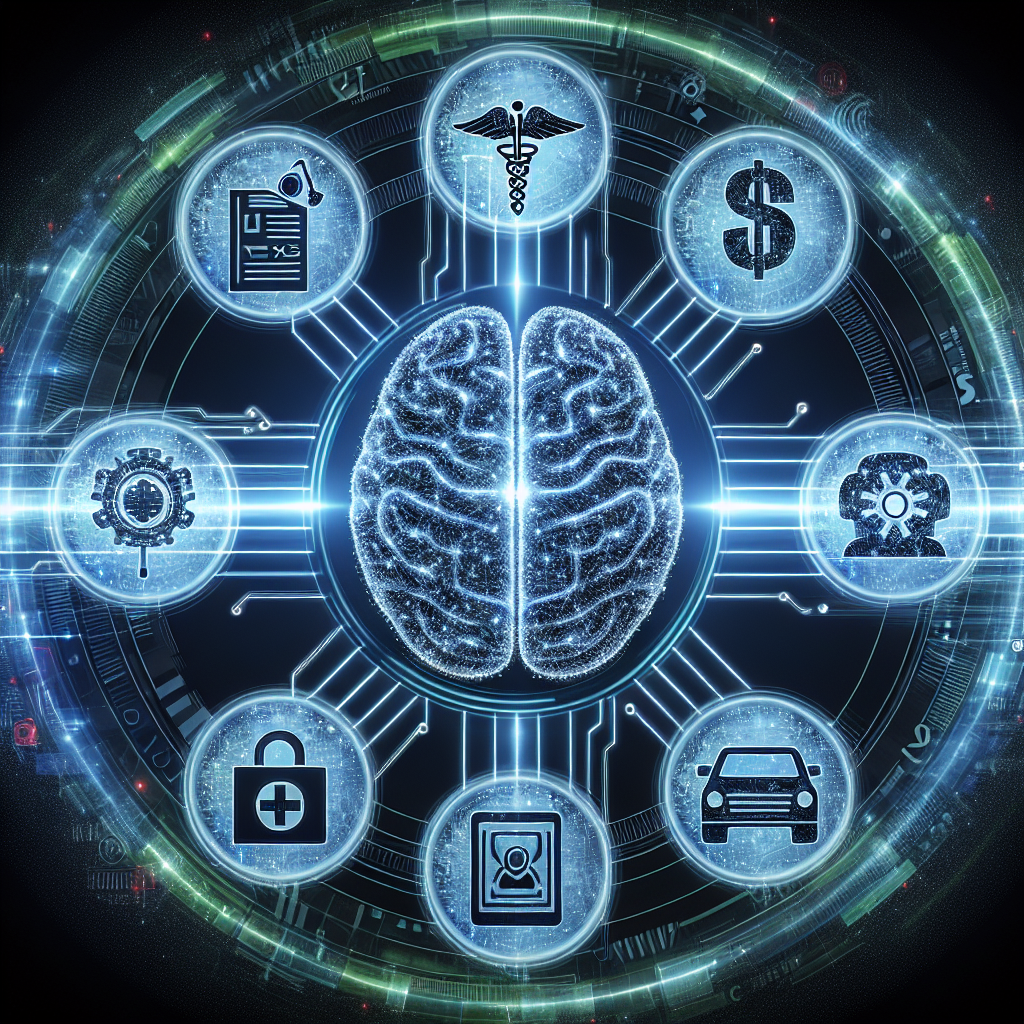Artificial General Intelligence (AGI) is a rapidly evolving technology that is reshaping industries across the globe. AGI refers to a type of artificial intelligence that possesses the ability to understand, learn, and apply knowledge in a way that is comparable to human intelligence. Unlike narrow AI, which is designed for specific tasks, AGI has the potential to perform a wide range of tasks and adapt to new situations without human intervention.
The impact of AGI on industries is profound, leading to significant changes in the way businesses operate, innovate, and compete. In this article, we will explore how AGI is reshaping industries and the potential implications for the future.
1. Healthcare Industry:
One of the industries that is being revolutionized by AGI is healthcare. AGI has the potential to improve patient outcomes, reduce healthcare costs, and enhance the overall quality of care. AGI-powered systems can analyze vast amounts of medical data to identify patterns, diagnose diseases, and recommend personalized treatment plans. This can lead to more accurate diagnoses, faster treatment, and better patient outcomes.
2. Manufacturing Industry:
AGI is also transforming the manufacturing industry by enabling automation and optimizing production processes. AGI-powered robots can perform complex tasks with precision and efficiency, leading to increased productivity and reduced labor costs. AGI can also help manufacturers identify inefficiencies in their operations, optimize supply chains, and improve product quality.
3. Financial Services Industry:
In the financial services industry, AGI is being used to analyze market trends, predict financial risks, and automate trading decisions. AGI-powered algorithms can analyze vast amounts of financial data in real-time, enabling financial institutions to make better investment decisions and reduce risks. AGI is also being used to detect fraud, identify money laundering activities, and enhance cybersecurity measures.
4. Retail Industry:
AGI is reshaping the retail industry by personalizing customer experiences, optimizing inventory management, and improving supply chain operations. AGI-powered systems can analyze customer data to predict buying behavior, recommend products, and tailor marketing campaigns to individual preferences. AGI can also help retailers optimize pricing strategies, manage inventory levels, and streamline logistics operations.
5. Transportation Industry:
In the transportation industry, AGI is revolutionizing the way goods are shipped, routes are optimized, and vehicles are managed. AGI-powered systems can analyze traffic patterns, weather conditions, and other factors to optimize delivery routes, reduce fuel consumption, and minimize transportation costs. AGI is also being used to develop autonomous vehicles, drones, and other technologies that are reshaping the future of transportation.
FAQs about AGI:
Q: What is the difference between AGI and narrow AI?
A: AGI refers to a type of artificial intelligence that can perform a wide range of tasks and adapt to new situations, whereas narrow AI is designed for specific tasks and lacks the ability to generalize.
Q: How is AGI different from human intelligence?
A: AGI is designed to mimic human intelligence in terms of learning, understanding, and applying knowledge, but it is still limited in its ability to replicate the full range of human cognitive abilities.
Q: What are the potential risks of AGI?
A: Some of the potential risks of AGI include job displacement, ethical concerns, and the potential for misuse of powerful AI systems. It is important to develop ethical guidelines and regulations to ensure that AGI is used responsibly and ethically.
Q: How can businesses prepare for the impact of AGI?
A: Businesses can prepare for the impact of AGI by investing in AI research and development, training employees on AI technologies, and developing AI strategies that align with their business goals. It is also important for businesses to stay informed about the latest developments in AI and to adapt their operations accordingly.
In conclusion, AGI is reshaping industries in profound ways, leading to increased efficiency, innovation, and competitiveness. As AGI continues to evolve, it is important for businesses to embrace this transformative technology and leverage its capabilities to drive growth and success in the future.

